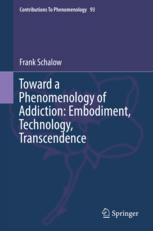

Most ebook files are in PDF format, so you can easily read them using various software such as Foxit Reader or directly on the Google Chrome browser.
Some ebook files are released by publishers in other formats such as .awz, .mobi, .epub, .fb2, etc. You may need to install specific software to read these formats on mobile/PC, such as Calibre.
Please read the tutorial at this link: https://ebookbell.com/faq
We offer FREE conversion to the popular formats you request; however, this may take some time. Therefore, right after payment, please email us, and we will try to provide the service as quickly as possible.
For some exceptional file formats or broken links (if any), please refrain from opening any disputes. Instead, email us first, and we will try to assist within a maximum of 6 hours.
EbookBell Team

4.7
26 reviewsThis book addresses an epidemic that has developed on a global scale, and, which under the heading of “addiction,” presents a new narrative about the travails of the human predicament. The book introduces phenomenological motifs, such as desire, embodiment, and temporality, to uncover the existential roots of addiction, and develops Martin Heidegger’s insights into technology to uncover the challenge of becoming a self within the impulsiveness and depersonalization of our digital age.
By charting a new path of philosophical inquiry, the book allows a pervasive, cultural phenomenon, ordinarily reserved to psychology, to speak as a referendum about the danger which technology poses to us on a daily basis. In this regard, addiction ceases to be merely a clinical malady, and instead becomes a “signpost” to exposing a hidden danger posed by the assimilation of our culture within a technological framework.